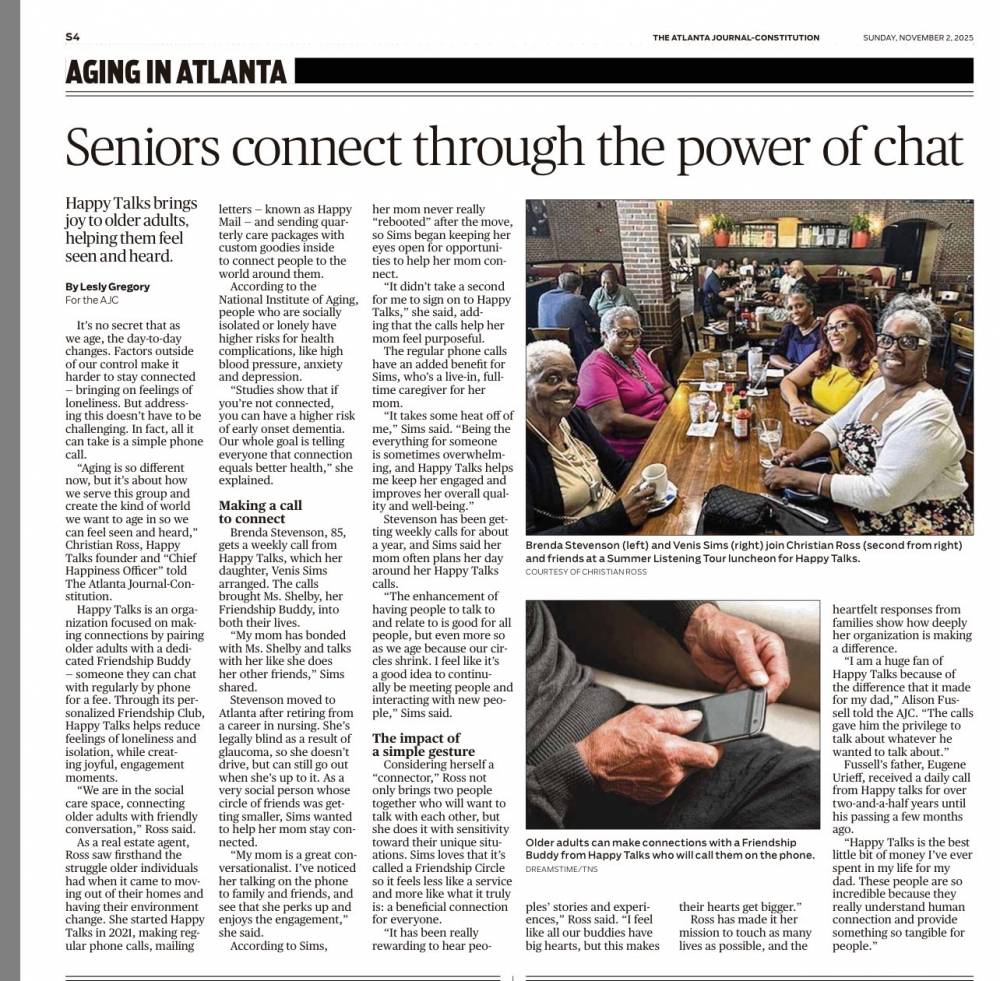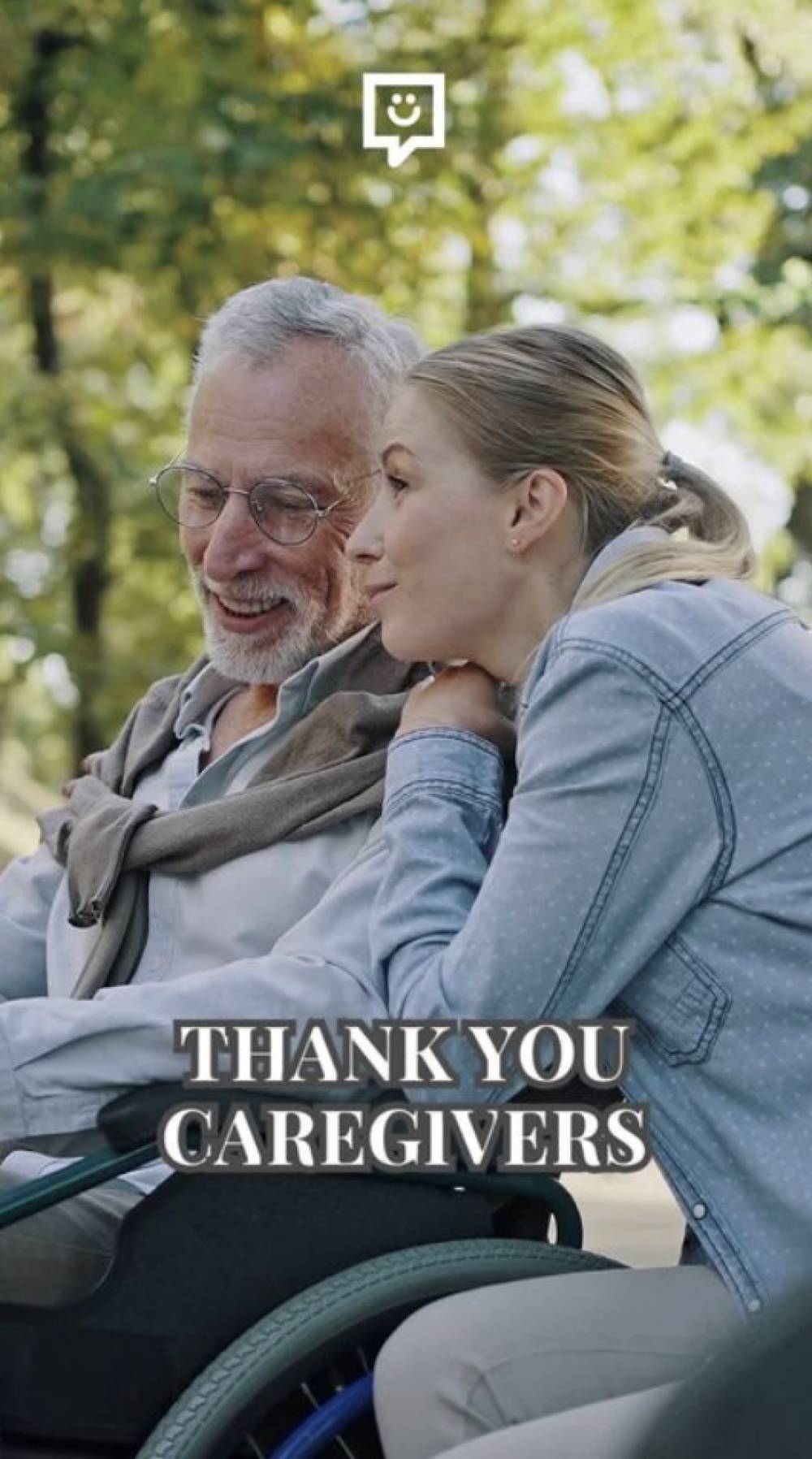Five Ways to Support the Older Adults in your Life
As our seniors get older, it's key to give them the care they need. This article will show you five ways to help them. You can offer practical help, make sure they have friends, and help them stay independent.

Hi! 👋 We're Happy Talks and we spread joy to older adults and the elderly every day with our social phone calls designed to spread joy to seniors and caregivers. Our Memberships give each the space to feel seen and heard. Schedule a call or send us a message when you want to learn more.
Back to the article....
Key Takeaways
- Understand the unique challenges of aging, including physical limitations and emotional well-being
- Offer practical assistance with transportation, errands, and household tasks
- Facilitate social connections to combat isolation and loneliness
- Engage older adults in meaningful activities, hobbies, and lifelong learning
- Prioritize elder care options and support their independence and dignity
Understanding the challenges of aging
As we age, our bodies and minds face many health issues. These can affect how we move, think, and feel. It's important to know these challenges to help our elders.
Physical Limitations and Health Concerns
Older adults often see changes that make moving and doing things harder. Age-related health issues like arthritis and heart diseases can make everyday tasks tough. Doctors, medicine, and special tools can help seniors stay independent.
Emotional and Mental Well-being
Older people also face emotional challenges. Losing friends, retiring, and feeling alone can hurt their mental health. Depression and anxiety are common and need care. Talking to others, doing fun activities, and seeing counselors can help.
| Common Age-Related Health Issues | Emotional and Mental Health Concerns |
|---|---|
|
|
Caregiving Expert Pamela D. Wilson
"Understanding the physical and emotional challenges of aging is the first step in providing the necessary support and care for our senior loved ones."
Providing practical assistance
Supporting older adults in your life is very meaningful by helping with everyday tasks. This support can greatly improve their daily life, keeping them independent and happy. You can help in many ways, like with transportation or running errands.
Transportation and Running Errands
Older adults might struggle with getting around and doing errands alone. By driving them places or going with them on public transport, you're really helping. This support keeps them active and connected in their community.
Helping with errands is also very important. This could mean shopping for groceries, picking up prescriptions, or doing other important tasks. Taking these tasks off their hands helps them a lot and keeps their life better.
| Task | How You Can Help |
|---|---|
| Transportation | • Offer rides to appointments, errands, or social activities • Assist with navigating public transportation if needed |
| Grocery Shopping | • Accompany them to the grocery store • Assist with carrying and putting away groceries |
| Household Chores | • Help with light cleaning, laundry, or yard work • Assist with organizing and decluttering |
Helping with daily tasks, transportation, and errands can really change the lives of older adults. It helps them stay independent and live better.
Fostering social connections
As we get older, keeping strong social ties is key for our health. Helping elderly loved ones feel connected can greatly improve their mental and emotional health. It's crucial for seniors to have social connections.
One great way to help older adults feel connected is through regular visits and outings. Activities like weekly coffee dates, park trips, or family get-togethers can fight loneliness. Encourage them to keep up with friends through phone calls, video chats, or in-person meetings.
Also, think about getting the elderly involved in group activities and community events. Places like senior centers, clubs, volunteer work, and classes offer a sense of purpose and friendship. Being part of these groups helps fight isolation and leads to a more active and happy life.
| Benefits of Social Connections for Seniors | Potential Consequences of Social Isolation |
|---|---|
|
|
By focusing on social connections for seniors and supporting these relationships, we help them live better lives. This keeps them independent and full of dignity.




